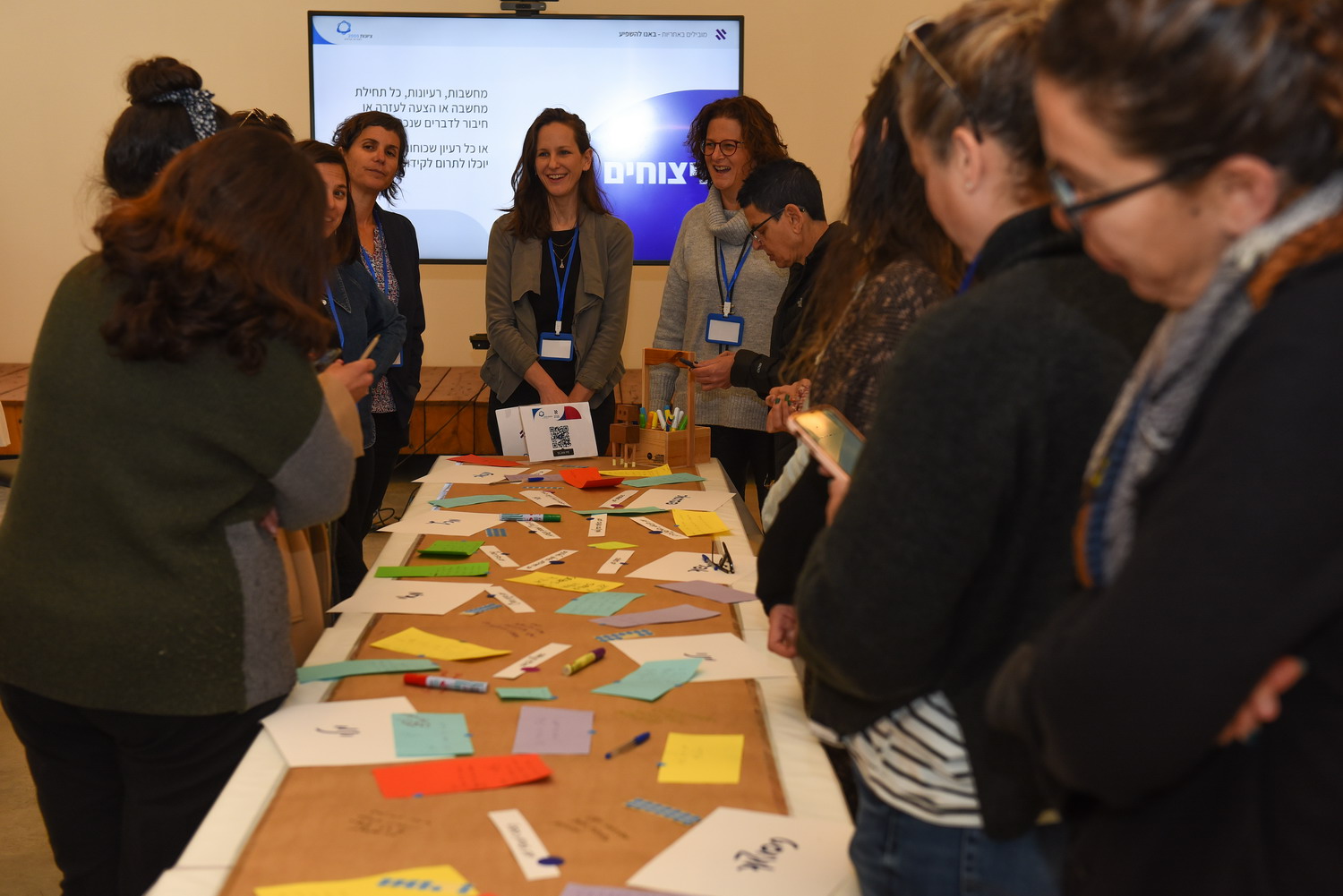
ABOUT US
"Zionism 2000, founded in 1995 by a group led by businessman Ronny Douek, is dedicated to driving social change. We believe in and work towards a culture of social responsibility as a tool to reduce disparities, by encouraging and supporting organizations wishing to increase their social footprint and creating collaborations between the public, business and nonprofit sectors.


Leading responsibly
Working with the Israeli business sector, we translate values — such as equal opportunities, personal and organizational responsibility, and inclusion of diverse populations — into action. We believe in systemic and measurable efforts based on collaboration between sectors, and specific to places and people.
The Zionism 2000 team has been engaging with businesses for over 27 years to maximize their impact on reducing socio-economic disparities.
Among other things, we support staff in intra-organizational processes: developing social and economic agendas, along with policies and strategies for diverse and inclusive employment, procurement and production; building work plans; and guiding them from planning to implementation.
We help define focused goals that reflect a company’s abilities, needs and interests, formulating its vision and socio-economic objectives within its ESG concept and core business.
Processes are uniquely designed for each individual company, developing and tailoring practices that convey the company’s capabilities and strengths.
With our broad understanding and knowledge of the stakeholders within our partner businesses, the processes we initiate and lead in Zionism 2000 draw inspiration from our partnerships.
Leading with core responsibility
Core responsibility is a worldview and an action strategy developed by Zionism 2000 that helps companies maximize their economic impact via the core of any business — human capital, acquisition and development, and selling products and services.
Core responsibility encourages the company to examine and adjust its work practices in these areas, and to integrate diverse populations within Israeli society.
A business wanting to advance core responsibility should be asking questions such as:
• Who does the company employ? And how can it integrate workers from diverse populations?
• Who are the company's suppliers? And how can it diversify its supply chain with local suppliers, businesses owned by target populations, and social enterprises?
• Who is the target market for the company's products and services and to whom are they inaccessible? How can the company develop products and services adapted to underrepresented populations?
Based on the answers, we help companies adjust their work practices, to include more local suppliers and minority-owned businesses, more employees from diverse populations (e.g. Arabs/ultra-Orthodox/people with disabilities/seniors), and provide services and products for diverse clients who may otherwise lack access to them.
